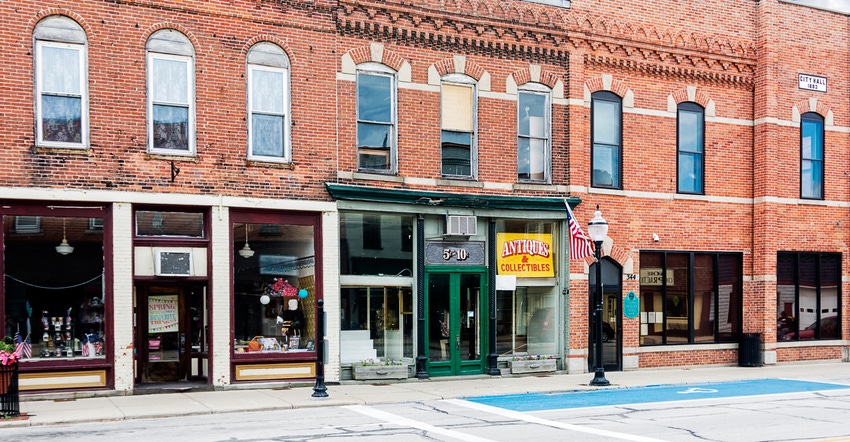June 5, 2017

“Whatever your task is, no matter what environment you are working in, the best legacy is to leave it in a better condition than when you began.”
Having lived and worked in rural America all my life, this vision statement is more relevant to us in agriculture today than at any other time in our history.
This was my focus as a member of the board of directors at Kansas Association of Wheat Growers, as an officer at KAWG and later at National Association of Wheat Growers in Washington, D.C.
That said, rural America is suffering. A simple look at the numbers does not tell the whole story.
Addiction from abuse of opioid drugs is rising in rural areas. Nearby Enid, Okla., ranks No. 4 nationally in abuse rate of opioids (10.2%) and No. 3 in the abuse of opioid prescriptions issued (54.7%). Death rates from overdoses are also on the rise.
A brief look in my hometown newspaper legal column reveals a host of rising crime rates, from child abuse and domestic violence to burglary and crimes relating to drug abuse. Back in the ’70s, the legal page was a short column appearing in an obscure section, usually featuring a local citizen who was caught fishing without a license. Now, most of these are names I do not even recognize, and it requires multiple columns, in fine print. Families living in poverty, unable to escape from it and unable to achieve financial security through good-paying jobs, is one primary reason among many.
Crumbling infrastructure requires increasing scrutiny. Roads and bridges, designed for Depression-era vehicles, are not capable of supporting modern-day vehicles and farm equipment. Last fall, one of the largest crowds at a local county commission meeting pitted angry constituents against county commissioners.
Rather than cutting national spending priorities within rural America, we require greater focus on installing current technology that will support increased investment in new business ventures. This may not require new taxes, but a change in priorities.
Rural hospitals struggle to remain solvent. Proposed changes in Medicaid legislation and Medicare, and attempts at repealing the Affordable Care Act with a revised version of a national health-care policy — with highly questionable provisions for people with pre-existing conditions — all create uncertainty that will certainly impact rural America.
Immigration policy, or lack of agreement on a viable, constitutionally legal policy, certainly affects rural America. Farms require legal immigrant labor to bring in the harvests and do the work. An executive order is not an appropriate solution to a complex problem.
Economic development in rural America is not improving as fast as it could or should. Rather than looking to Washington or Topeka, the task falls on our shoulders. The question is, however, are we up to the task, and are we willing to do what it takes to improve our local economy?
Improving our local economy also has implications on jobs. With each succeeding graduating class at the high school, chances are slim that the majority of these graduates, after college, will return home to work. Availability of higher-paying jobs is the major factor when graduates look for a place to live and work. So, the “brain drain” continues, but we must find new and innovative ways to make working in our hometowns viable and even desirable.
I think of these issues each time I drive down Main Street. There are too many vacant buildings that once housed prosperous businesses. Three businesses closed down so far in the past 12 months. To be fair, three new construction projects are ongoing, but the net economic result is only one additional staff person to be employed, and only one building represents additional property tax revenue. The net effect is hardly a wash, at best.
Some solutions certainly require action in Topeka or Washington, D.C. However, most require a local solution, and that solution is more of an adjustment in how we think and act.
Rather than spending our energies on personal political differences — which often hinders rather than helps — our focus must center on ways that will address these questions, right here, at home. We can leave a legacy that is better than we have now, if we have the will to do it.
Penner is a Marion County farmer and past president of the National Association of Wheat Growers. His email is [email protected].
About the Author(s)
You May Also Like




